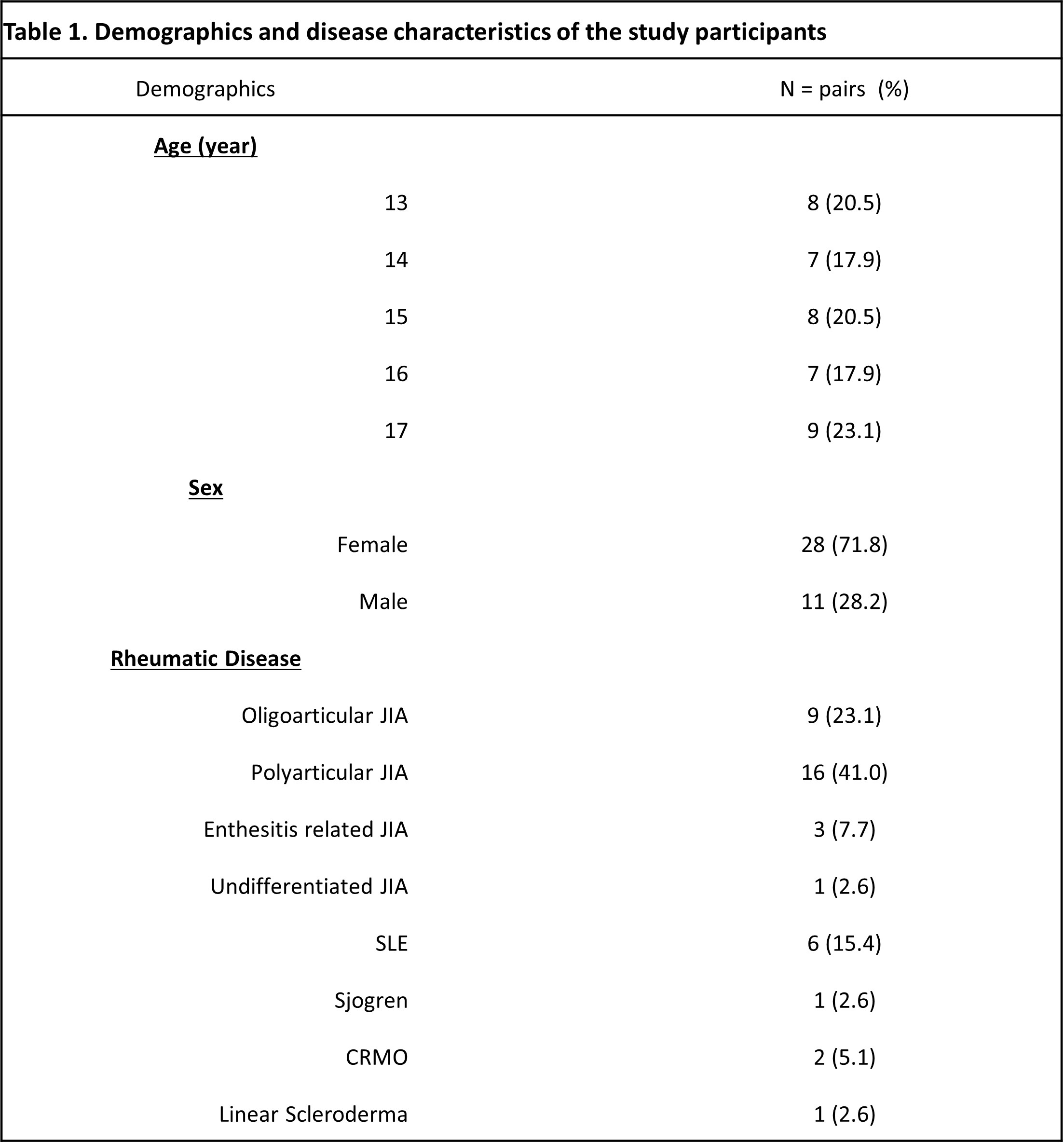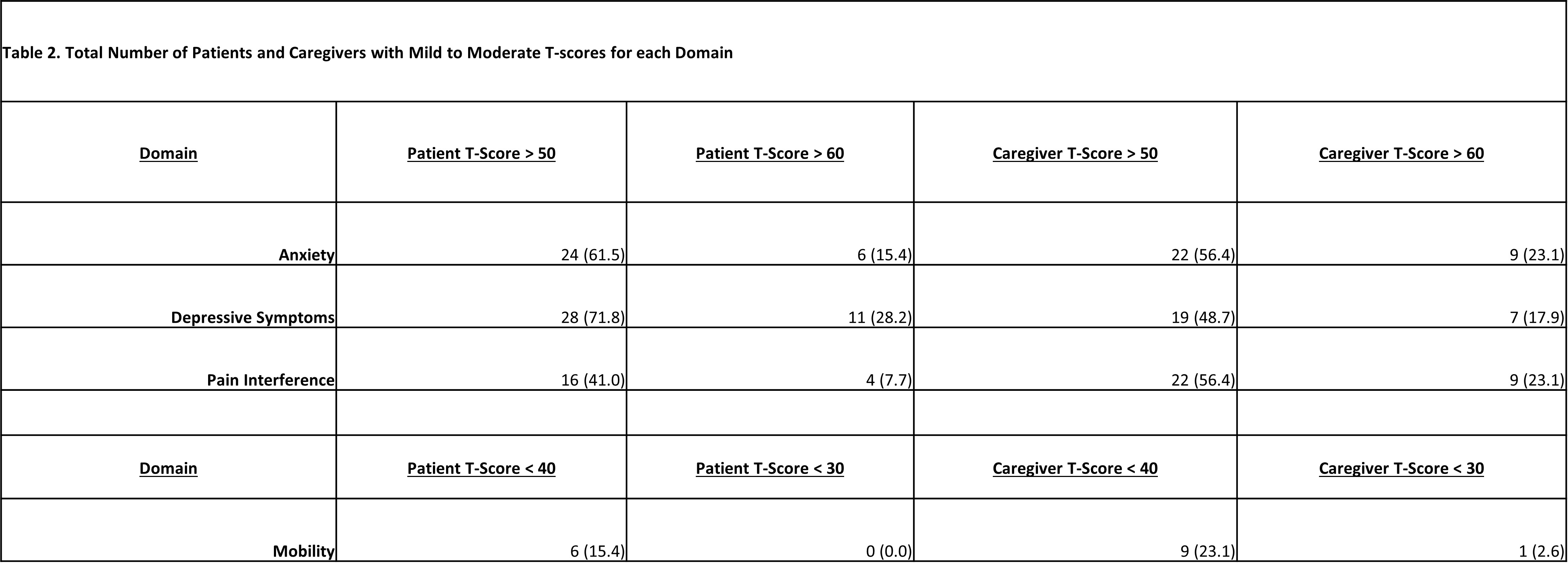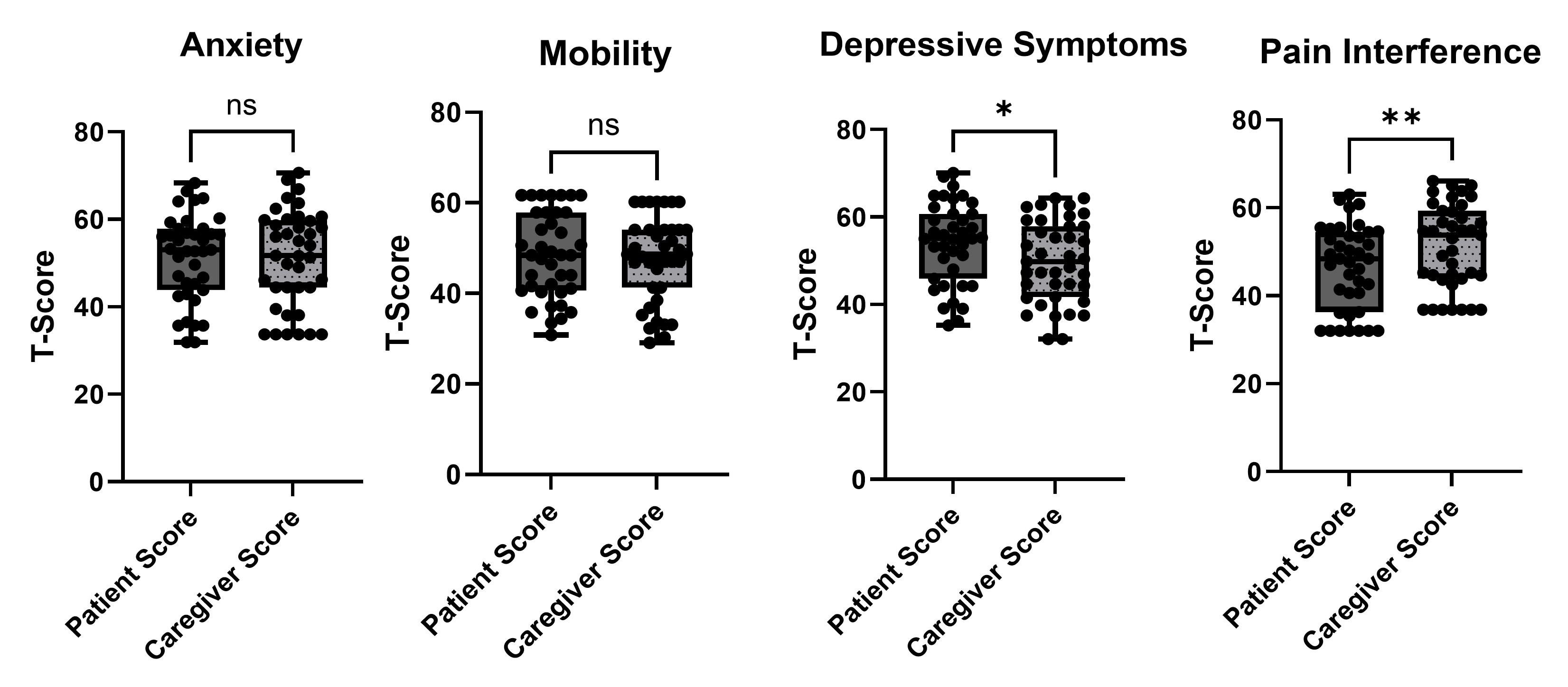Session Information
Session Type: Abstract Session
Session Time: 1:00PM-2:30PM
Background/Purpose: The Patient Reported Outcome Measures Information System (PROMIS) has been validated for pediatric rheumatology conditions in several domains including, physical ability, mental health, and social interactions1. Studies in non-rheumatic diseases show there are discrepancies between how patients and their caregivers respond to PROMIS which can lead to delay in proper diagnosis and medical care2. We therefore hypothesize that there will be significant differences in all PROMIS domains between adolescent patients with rheumatic diseases and their caregivers.
Methods: This single-center prospective cohort study approved by the University of Rochester IRB (00008536) was conducted between August-December 2023. Established adolescent patients (ages 13-17 years old) with rheumatic diseases and caregivers were eligible for the study. Patient and caregiver pairs were asked to answer four separate PROMIS domains: anxiety, depressive symptoms, mobility, and pain interference. A T-score > 50 in the pain-interference, depressive symptoms, and anxiety domains is considered an abnormal score. A T-score < 40 for the mobility domain is considered an abnormal score.
Results: A total of 39-adolescent and caregiver pairs were enrolled in the study. 71% of the cohort were females, and 55% of the cohort had a known diagnosis of juvenile idiopathic arthritis (Table 1). Adolescents had more T-scores > 50 compared than their caregivers on the depressive symptoms domain, and had lower T-scores than their caregivers on the pain interference domain (Table 2). There was a statistically significant difference between caregivers and adolescent patients on the depressive symptoms (p value 0.0116) and pain interference (p value 0.0014) domains (Figure 1). There was no difference between scores in the anxiety and mobility domains.
Conclusion: Through the use of PROMIS domains, we show for the first time that adolescent patients with rheumatic diseases are more likely to underreport symptoms of depression to their caregivers, and caregivers overreport symptoms of pain. Surprisingly, not all domains showed variation as anxiety and mobility domains showed agreement between patients and caregivers. These findings suggest that there may be a disconnect between caregivers and adolescents in recognizing signs of disease related symptoms and mental health in children with rheumatic conditions. Future research on a larger scale is needed to further assess these differences.
References:
- Craig, Joshua et al. “Comparing the Measurement Properties and Preferability of Patient-Reported Outcome Measures in Pediatric Rheumatology: Promis Vs Chaq.” Journal of rheumatology 48.7 (2021): 1065–1072. Web
- Yan, Yufan et al. “Use of PROMIS® to Screen for Depression in Children with Arthritis.” Pediatric rheumatology online journal 18.1 (2020): 92–92. Web
To cite this abstract in AMA style:
Baluta S, Rahimi H, Swanger-Gagne M, Yussman S, Schutt C. Variability in Pain and Depression Measures Between Adolescent Patients with Rheumatic Disease and Caregivers [abstract]. Arthritis Rheumatol. 2024; 76 (suppl 9). https://acrabstracts.org/abstract/variability-in-pain-and-depression-measures-between-adolescent-patients-with-rheumatic-disease-and-caregivers/. Accessed .« Back to ACR Convergence 2024
ACR Meeting Abstracts - https://acrabstracts.org/abstract/variability-in-pain-and-depression-measures-between-adolescent-patients-with-rheumatic-disease-and-caregivers/



